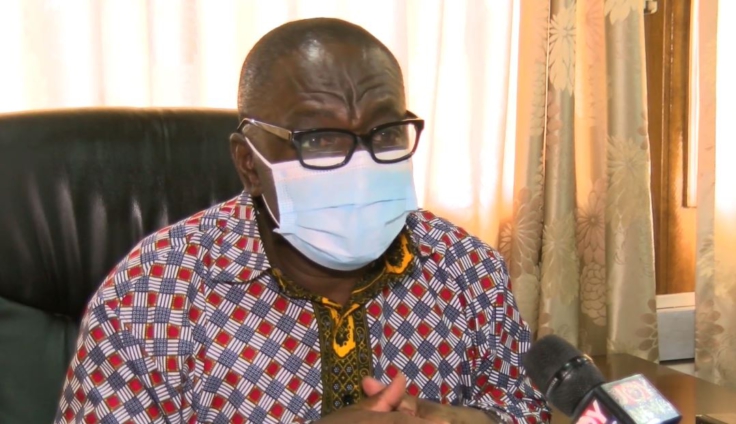The Ashanti Regional Health Directorate has joined the Epilepsy Community in commemorating International Epilepsy Day, which is observed on the second Monday of February each year.
Dr Rita Larson-Reigndorf, the Deputy Health Director in Charge of Clinical, told the press in Kumasi that the day is marked to relieve public fear and ignorance, prejudice, and social stigma associated with epilepsy.
“International Epilepsy Day seeks to raise awareness and educate the general public on the true facts about epilepsy and the urgent need for improved treatment, better care, and greater investment in research,” she said.
Dr Larson-Reigndorf says many patients of epilepsy are living their lives in the shadows for the fear of being stigmatised, hence reluctant to speak out.
According to her, epilepsy is a chronic non-communicable disease of the brain that affects people of all ages and has no effect on anyone who comes in contact with the patient.
As the 2022 International Epilepsy Day coincides with Valentine’s Day, a season to show love, the epilepsy community is expecting the world to show love to epileptic patients, hence the theme: “Friendship with Inclusion”.
Sixty-five million people around the world live with epilepsy making it one of the most common neurological conditions.
In Ghana, an estimated one per cent (300,000 people) of the population live with epilepsy and only 15 per cent of those diagnosed are on treatment.
For six out of ten people with epilepsy, the cause is unknown.
Dr Larson-Reigndorf says it is possible to diagnose and treat most people with epilepsy at the primary healthcare level without the use of sophisticated equipment.
“A lot can be done to improve the quality of life of the people with epilepsy. It is possible to diagnose and treat most people with epilepsy at the primary healthcare level without the use of sophisticated equipment.
"For many people living with epilepsy, the misconception and discrimination can be more difficult to overcome than the seizure themselves,” she noted.
Ashanti Regional Health Director, Dr Emmanuel Tinkorang, wants the public to open their arms to people living with epilepsy to make them feel belonging.
Ghana is one of the countries that have achieved the WHO Programme on reducing the epilepsy treatment gap and the mental health Gap Action Programme (mhGAP).
These projects have focused on expanding the skills of primary care and non-specialist health providers at the community level to diagnose, treat and follow up people with epilepsy.
These pilot programmes have led to a considerable increase in access to treatment for epilepsy.
Latest Stories
-
Expansion Drive: Takoradi Technical University increases faculties
3 hours -
SHS heads demand payment of outstanding funds before reopening of schools
4 hours -
We thank God for the 2024 general elections – Akufo-Addo
4 hours -
Coconut Grove Beach Resort marks 30 years of excellence with memorable 9 lessons & carols service
4 hours -
WAFU B U-17 Girls’ Cup: Black Maidens beat Nigeria on penalties to win inaugral tournament
5 hours -
Real Madrid beat Sevilla to keep pressure on leaders Atletico
6 hours -
Liverpool put six past Spurs to go four points clear
6 hours -
Manchester United lose 3-0 at home to Bournemouth yet again
6 hours -
CHAN 2024Q: ‘It’s still an open game’ – Didi on Ghana’s draw with Nigeria
6 hours -
CHAN 2024Q: Ghana’s Black Galaxies held by Nigeria in first-leg tie
7 hours -
Dr Nduom hopeful defunct GN bank will be restored under Mahama administration
8 hours -
Bridget Bonnie celebrates NDC Victory, champions hope for women and youth
8 hours -
Shamima Muslim urges youth to lead Ghana’s renewal at 18Plus4NDC anniversary
9 hours -
Akufo-Addo condemns post-election violence, blames NDC
9 hours -
DAMC, Free Food Company, to distribute 10,000 packs of food to street kids
10 hours

